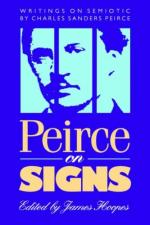|
This section contains 6,998 words (approx. 24 pages at 300 words per page) |

|
SOURCE: "The Resurgence of Pessimistic Pragmatism: Charles Peirce's Legacy," in Encounter, Vol. 75, July-August, 1990, pp. 38-45.
In the following excerpt, Feuer advances his notion that Peirce was the first philosopher to be considered a "pragmatic pessimist. "
According to John Dewey, the pragmatic philosophy arising in America as the expression of its open frontier and its business civilisation offered, to many men an open universe with indeterminate futures. "It is beyond doubt", he wrote, "that the progressive and unstable character of American life and civilisation has facilitated the birth of a philosophy which regards the world as being in continuous formation, where there is still place for indeterminism, for the new and for a real future."
To both William James and John Dewey, the existence of never-ending open possibilities of novel events, experiences, and social structures was the philosophical basis for belief in human progress. When the constraining hand of...
|
This section contains 6,998 words (approx. 24 pages at 300 words per page) |

|


